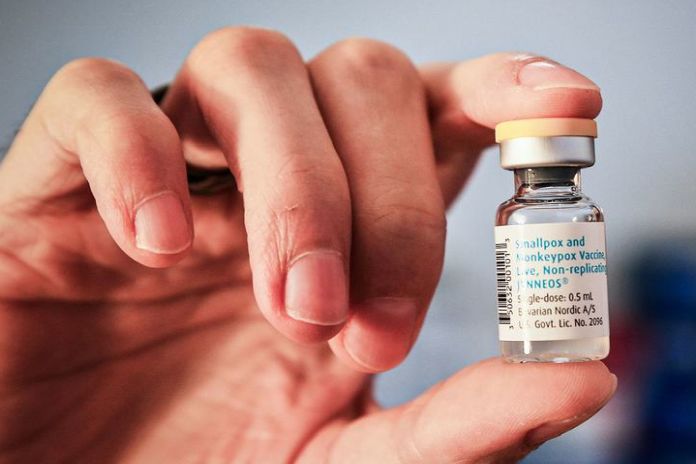GENEVA, Switzerland – Mpox is “not the ‘new COVID’” and European governments need to show strong political commitment to eliminate it, while standing in solidarity with Africa, a top official of the UN World Health Organization (WHO) said on Tuesday. Briefing journalists in Geneva, Dr Hans Kluge, WHO Regional Director for Europe, insisted that the risk from mpox to the general population was “low.”
He rejected comparisons between the fast-spreading viral disease which the agency declared an international public health emergency last week, and the COVID-19 pandemic, “regardless of whether it’s mpox clade 1, behind the ongoing outbreak in east-central Africa, or mpox clade 2, behind the 2022 outbreak that initially impacted Europe and has continued to circulate in Europe since”.
“We know how to control mpox – and in the European region – the steps needed to eliminate its transmission altogether,” Dr Kluge continued.

Transmission pattern
Current scientific knowledge about the virus indicates that it primarily transmits through skin-to-skin contact with mpox lesions, including during sex. The UN health agency official’s reply to questions about whether Europe would experience COVID-like lockdowns was an unequivocal “no.”
Speaking via video link from Copenhagen, Dr Kluge recalled that the 2022 European mpox outbreak was brought under control “thanks to the direct engagement with the most affected communities of men who have sex with men”.
He cited “behaviour change, non-discriminatory public health action and mpox vaccination” as factors of success in Europe in 2022. However, the region “failed to go the last mile” to quash the disease and is currently seeing some 100 new mpox clade 2 cases every month, he said.
Mutation discovered
Last week, Sweden became the first country outside Africa to record a case of the mpox clade 1 variant at the centre of the latest outbreak, which has been spreading from the Democratic Republic of the Congo (DRC) to neighbouring countries. The Swedish case concerned a person who had travelled to an affected area of Africa.
The current state of alert due to clade 1, which is considered to be more severe, gives European health authorities the opportunity to also strengthen focus on clade 2 and eliminate it “once and for all,” Dr Kluge urged.
Smallpox vaccines work
The UN health agency representative called specifically for European solidarity with Africa, notably regarding equitable access to vaccines.
WHO recommends the use of MVA-BN or LC16 vaccines, or the ACAM2000 vaccine when the others are not available. These have originally been developed against the now-eradicated disease smallpox.
WHO spokesperson Tarik Jašarević said that the producer of MVA-BN, Bavarian Nordic, “has capacity to manufacture 10 million doses by end of 2025 and can already supply up to two million doses this year”. As for LC16, which is a vaccine produced on behalf of the Government of Japan, he underscored that there is a “considerable” stockpile of this vaccine.
“Japan has been very generous in the past with donations” and is currently in negotiations with the DRC government, he said.
The DRC has reported more than 15,600 mpox cases so far this year and some 540 deaths.

International response triggered
Last week, WHO chief Tedros Adhanom Ghebreyesus triggered an “Emergency Use Listing” process for mpox vaccines, designed to accelerate access for lower-income countries which have not yet issued their own regulatory approval.
The measure also makes it possible for UN health agency partners such as Gavi, the Vaccine Alliance and the UN Children’s Fund (UNICEF) to procure vaccines for distribution.
Dr Kluge mentioned that the European Union (EU) is already donating vaccines, which made him “optimistic”, but that this generosity will be put to the test if more vaccines are needed in the EU.
And although vaccines are essential, they are “just some of the tools,” said WHO’s Jašarević, alongside contact tracing, strong surveillance, public health measures and adequate clinical care for those who need it.
He mentioned that a positive legacy of the COVID-19 response was improved laboratory capacity around the world allowing to better detect various viruses.
Building on health lessons from the recent pandemic, global coordination will be key to defeating mpox. “We can, and must, tackle mpox together – across regions and continents,” Dr Kluge insisted. “Will we choose to put the systems in place to control and eliminate mpox globally? Or will we enter another cycle of panic and then neglect?”
“How we respond now, and in the years to come, will prove a critical test for Europe – and the world,” Dr Kluge concluded.





